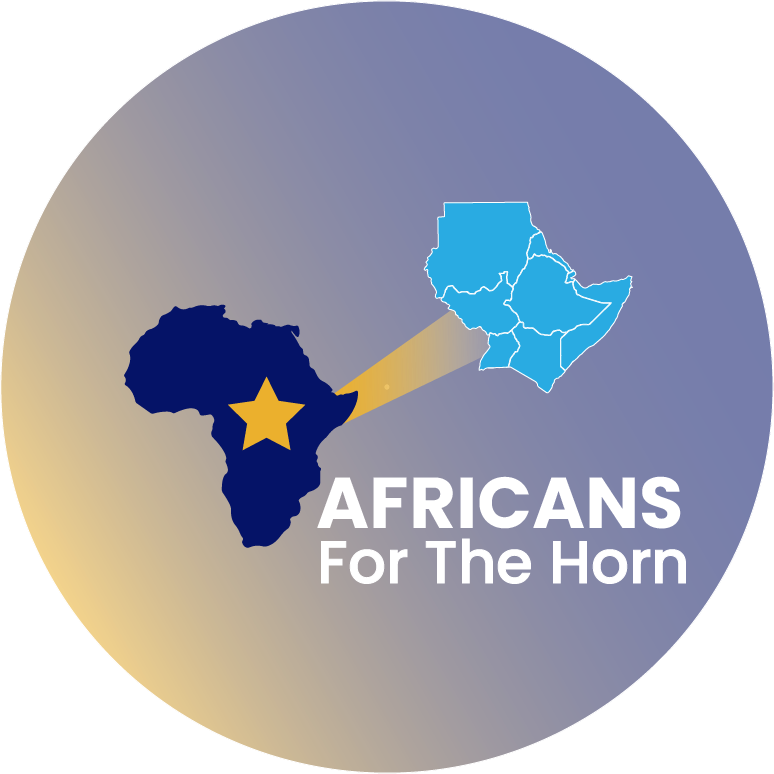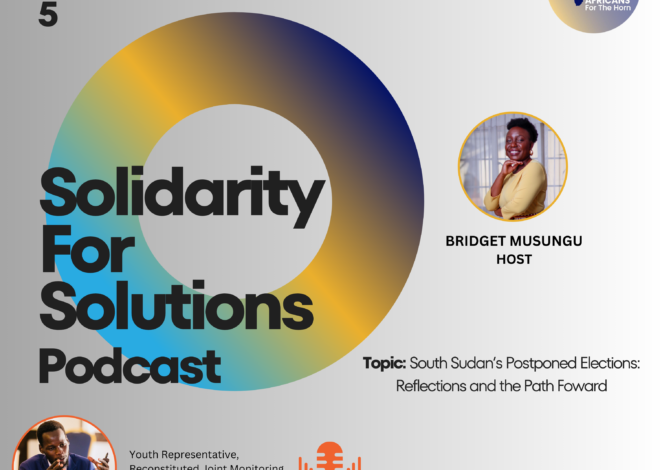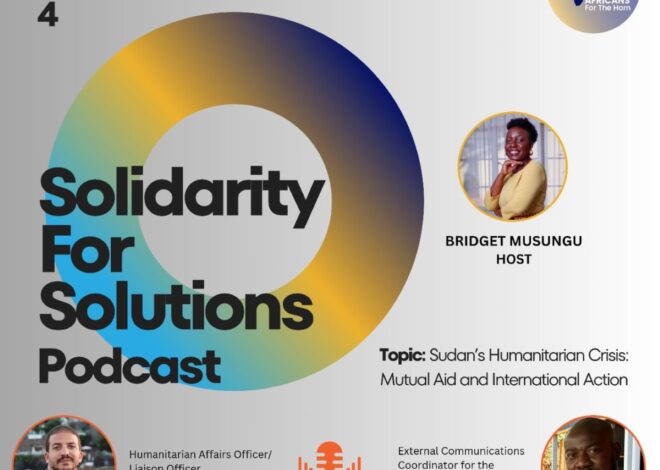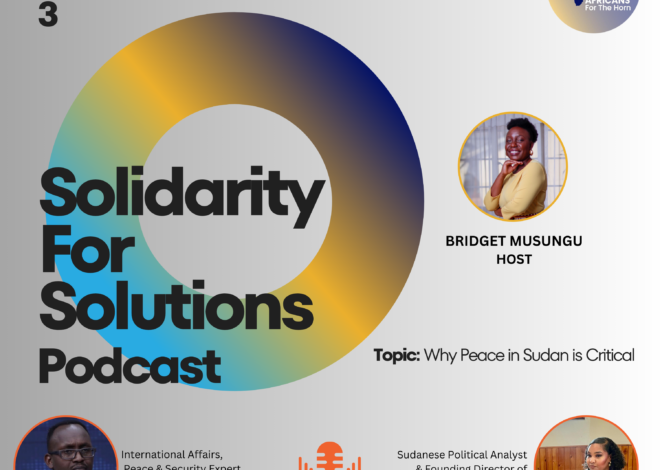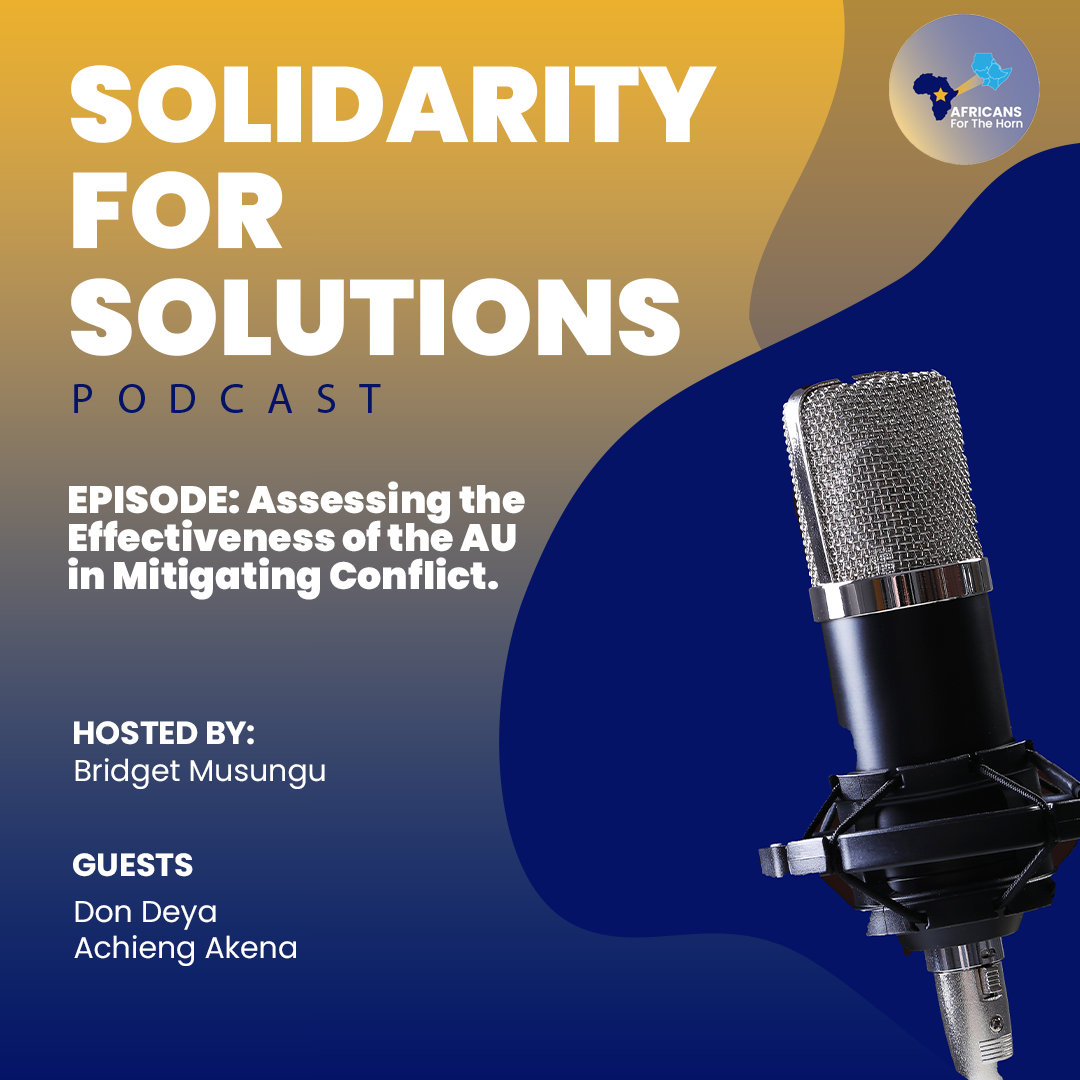
Solidarity For Solution (Season 1)
Episode 1: Assessing the Effectiveness of the African Union Peace and Security Council in Mitigating Conflict: A Comprehensive Analysis with a Focus on the Horn of Africa
The Peace and Security Council (PSC) serves as the standing body of the African Union, dedicated to preventing, managing, and resolving conflicts. The body was established to be a collective security and early warning arrangement intended to facilitate timely and efficient responses to conflict and crisis situations in Africa. Since its inception, the Peace and Security Council (PSC) has initiated various mediation and peace-building efforts, employing preventive measures and conflict resolution strategies.
The council is composed of 15 members, each with equal voting powers, of which five are elected to three-year terms, and ten to two-year terms on rotation. There are no permanent members, but immediate re-election is allowed. Cameroon, Djibouti, Morocco, Namibia, and Nigeria are currently serving of their three-year terms. They are eligible for contesting elections again in 2025. During the 44th ordinary session of the Executive Council held on 15 February 2024, 10 members took their seats on the PSC for two-year terms. Out of the 10 incumbents, Tanzania, Uganda (East Africa) and The Gambia (West Africa) have been re-elected to serve for another two years. Other regions include, Egypt (North Africa), Equatorial Guinea and Democratic Republic of Congo (DRC) (Central Africa), Cote d’Ivoire and Sierra Leone (West Africa), Angola and Botswana (Southern Africa).
The Horn of Africa continues to be characterized by enduring conflicts and an ongoing threat of instability. Given the extraordinary and significant challenges to peace and security in Africa, it is time for a change of course in the way the Peace and Security Council operates.
About the Podcast:
In the inaugural episode of Af4HA’s podcast, Achieng Akena and Donald Deya provide their analysis of the historical performance of the African Peace and Security Council in resolving conflicts within the Horn of Africa, challenges faced by the Council in mitigating crimes in the Horn as well as its success. They also delved into the potential enhancement to the Council’s strategies for more impactful conflict mitigation and initiatives by civil societies.
Speakers Bio
Achieng Akena:
Achieng Akena is a Kenyan lawyer and human rights and democracy practitioner with 25 years of experience in varied regions and contexts, from Botswana to Afghanistan. Most recently she has been working on knowledge production, policy advocacy and capacitation on displacement and migration trends in Africa, including the protection of displaced people and people on the move, and durable, impactful and sustainable solutions for them, including harnessing the dividends of regional integration arrangements. Achieng is a passionate and committed practitioner and advocate, with vast experience in regional integration, in the promotion and protection of human rights of marginalised people, and in democratic governance across Africa. She holds a Masters in International Human Rights Law from Oxford University in the UK.
Donald Deya: CEO – PALU and Member of the Af4HA
Mr. Deya is an Advocate of the High Court of Kenya, and was previously the CEO of the East Africa Law Society (EALS), and, before that, Deputy CEO of the Law Society of Kenya. He has also worked with the Kenyan Section of the International Commission of Jurists. While at the EALS, he founded the East African Civil Society Organizations’ Forum.
Among other things, he chairs the Executive Committees of the Pan African Citizens’ Network (PACIN), formerly known as the Centre for Citizens’ Participation in the African Union (CCP AU) and the International Coalition for the Responsibility to Protect. He is a former Chair of the African Court Coalition and is also a Councillor (and former Secretary) of the African Forum of the International Bar Association. He is also a former member of the Executive Committee of the International Institute of Law Association Chief Executives .
He litigates extensively at the African Court on Human and Peoples’ Rights, and the East African Court of Justice. Don has engaged in advocacy with several organs and institutions of the African Union, African Development Bank, African Legal Support Facility, Common Market for Eastern and Southern Africa, International Conference on the Great Lakes Region, Intergovernmental Authority on Development, and the East African Community amongst others. Mr. Deya also engages the United Nations system and the International Criminal Court.
